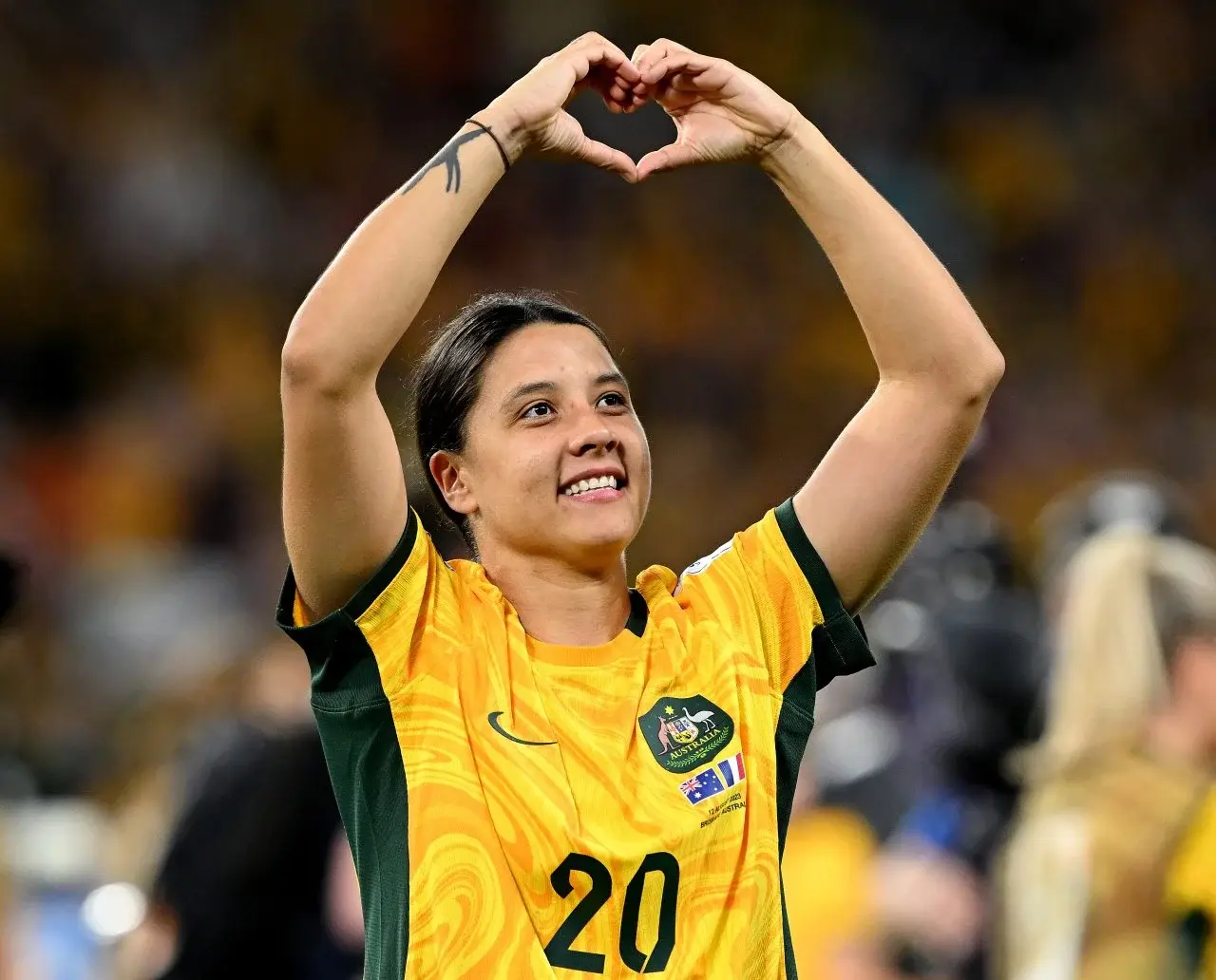
Sam Kerr is one of Australia’s most beloved footballers and a growing icon around the world. She is famed for her football talent as well as her captaincy for the Matildas. Her fast growing fame has brought intriguing questions about her background, whether she is an Aboriginal Australian for instance. This article will look into her heritage while also looking at the impact it played on her sporting career as an Australian representative.
Sam Kerr’s Heritage
Sam Kerr was born on the 10th of September in 1993 in East Fremantle, Western Australia to parents with differing cultural backgrounds. Kerr does not descend from Aboriginal Australians but instead her ancestry depicts Australia as a melting pot of many cultures.
Father’s Side: Sam’s father, Roger Kerr, is Anglo Indian, being born in Kolkata, India, His father was British while the mother was Indian. This Anglo Indian Descent is one of the strong aspects of Sam Kerr’s culture.
Mother’s Side: Unlike Sam’s father, her mother, Roxanne Kerr, is purely Australian with traces of Filipino ancestry, thus broadening down Sam Kerr’s roots.
Their combination of Anglo Indian and Filipino ancestry helped shape Kerr’s childhood and outlook as an Australian sports person representing an enriching sporting country.
Is Sam Kerr Aboriginal?
To clarify, Sam Kerr does not have Aboriginal ancestry. However, her career has been marked by a strong commitment to inclusivity and the celebration of Indigenous representation in Australian sports. Kerr has consistently shown her support for Aboriginal culture, particularly through her leadership of the Matildas.
Sam Kerr and Indigenous Representation
Even though she is not a First Nations’ People of Australia, Kerr has been outspoken about the representation of first generation Australian in sports. A good case was during the Tokyo 2020 Olympics where the Matildas were in the news for standing in solidarity with the Indigenous peoples of Australia.
The Aboriginal Flag Gesture
Before their opening match against New Zealand, the Matildas posed with the Aboriginal flag, a powerful statement of unity and respect. As team captain, Kerr supported the decision, highlighting the importance of Indigenous culture within the team.
Why Indigenous Representation Matters in Sports
Integrating Aboriginal culture in sport is more than just a token; it enables a greater relationship between sports people and the Australian social fabric. Sam Kerr does not come from an Indigenous background, but her determination puts emphasis on the need to recognize Aboriginals within the Australian context.
Sam Kerr’s National Status
As a footballer persisting competition is one aspect that defines Sam Kerr, but there is more. She is the face of Australia multiculturalism and does not only represent her race but ideals of inclusion and respect. Because of her motivation and leadership many sportsmen and women including those from Aboriginal and Torres Straits Islander have been encouraged to pursue sports.
Conclusions
While Sam Kerr is not Aboriginal, her commitment to promoting Indigenous culture in Australian sports is commendable. Her heritage, a blend of Anglo-Indian and Filipino roots, reflects Australia’s diversity, and her advocacy for inclusivity cements her status as a national icon.
For Australians, Sam Kerr’s story is a reminder of the power of sport to unite people across cultures and backgrounds. As she continues to inspire the next generation of athletes, her legacy will undoubtedly include her contributions to fostering inclusivity and respect in Australian sports.







